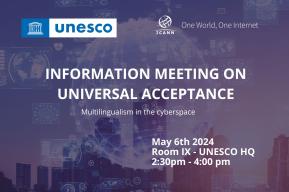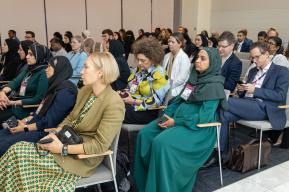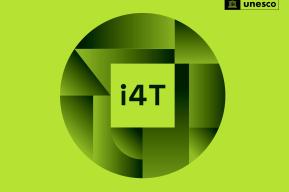Article
UNESCO advocates Internet Universality for meaningful access at WSIS Forum 2022

Whilst the COVID-19 placed a spotlight on digital divides and Internet access inequalities, the call for universal connectivity, for a human-centered Internet grounded in universal values, has never been louder. We need to mainstream R.O.A.M. principles (Rights, Openness, Access and Multi-stakeholder participation) to ensure that no one is left behind in the digital age.
The Internet Universality ROAM-X Indicators have been deployed in 43 countries across five continents, playing a crucial role in countering digital divides and fostering meaningful access to information for digital inclusion and cooperation. ROAM is a holistic, evidence-based framework which respects, protects and promotes all human rights, enabling inclusive connectivity.
Jamaica should formally join the list of countries applying the ROAM-X indicators in order to identify issues related to meaningful access to information and address emerging challenges relating to privacy, data control, human rights and open-source solutions, which are not addressed adequately in Jamaica.
Mona Shtaya, Local Advocacy Manager at 7amleh, underlined that the ROAM-X assessment is helping to reveal digital restrictions and divides, including gender gaps, in access to the Internet in Palestine. Sadaf Khan, Co-founder of Media Matters for Democracy shared that, in Pakistan, the ROAM-X assessment has been a comprehensive and reflective process to identify a number of positive initiatives and policy recommendations in the country.
Pisal Chanty, Director of Digital and Innovation Policy Research at the Cambodia Academy of Digital Technology (CADT), informed that the ongoing national assessment of ROAM-X indicators in Cambodia has been embraced by national stakeholders, leading to formulation of relevant digital policy recommendations to strengthen digital governance and improve citizens’ quality of life.
Deniz Susar, Governance and Public Administration Officer at UNDESA (United Nations Department of Economic and Social Affairs), highlighted the relevance of applying the ROAM-X indicators to measure ICTs and enhance the evidence-base for digital transformation in all countries, as a way to support sustainable development and digital collaboration.
All participants agreed that Internet Universality can be achieved through a long-term multistakeholder collaboration through the Dynamic Coalition on ROAM-X, where all stakeholders can engage to shape a better Internet for all in line with United Nations Secretary-General's Roadmap for Digital Cooperation, and the future Global Digital Compact.








